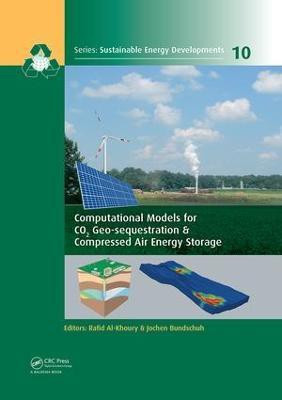Computational Models for CO2 Geo-sequestration & Compressed Air Energy Storage(English, Paperback, unknown)
Quick Overview
Product Price Comparison
A comprehensive mathematical and computational modeling of CO2 Geosequestration and Compressed Air Energy Storage Energy and environment are two interrelated issues of great concern to modern civilization. As the world population will soon reach eight billion, the demand for energy will dramatically increase, intensifying the use of fossil fuels. Utilization of fossil fuels is by far the largest anthropogenic source of CO2 emission into the earth's atmosphere. This unavoidable reality necessitates efforts to mitigate CO2 from indefi nitely being emitted in the atmosphere. CO2 geo-sequestration is currently considered to be a vital technology for this purpose. Meanwhile, and as fossil fuels will sooner or later be depleted, utilization of renewable energy resources is inevitable. Nowadays, wind and solar energy, being clean and sustainable, are gaining momentum. However, their availability is intermittent. This intermittent nature of solar and wind energy necessitates storing the produced energy at off-peak times for later use. Compressed air energy storage in subterranean caverns, aquifers and coal seams is currently considered to be a plausible technology for this purpose. CO2 geo-sequestration and compressed air energy storage are thus vital technologies for current and future energy strategy development. These technologies can be made safe and cost-effective by utilizing computational tools capable of simulating the involved multiphysical phenomena and processes. Computational modeling of such systems is challenging and resource-consuming. Meeting such a challenge constitutes the focal point of this book. This book addresses comprehensive theoretical and computational modeling aspects of CO2 geosequestration and compressed air energy storage. The book consists of 16 chapters authored by prominent researchers in these two fi elds. The authors of the book endeavoured to present years of innovative work, making it available for a wide range of readers, including geoscientists, poromechanists, applied mathematicians, computational geoscientists, geologists and reservoir engineers.


